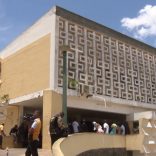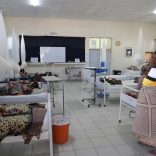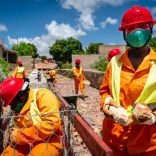Mozambique: Aid desperately needed, armed groups must cease attacks on civilians - Refugees ...
Six out of 10 children cannot read or count – O País

Photo: O País
The whole of society must be involved in the search for solutions to the crisis in the quality of education in Mozambique, former Minister of Education and Human Development (MINEDH) and Rector of the Pedagogical University UP-Maputo Jorge Ferrão told a forum for policy dialogue in the sector on Tuesday.
According to civil society studies, six out of 10 students up to 10 years of age in Mozambique cannot read or count. This, combined with errors in school textbooks and tests, as well as students’ low performance at school, constitutes a major obstacle to education in the country.
In reply to questions, Ferrão says that the situation is worrying, adding that solving it is a very complicated matter, due to the complexity of the process and level of requirements. So the subject will for some time continue to be a matter for debate.
According to the rector of UP-Maputo, tackling the problem necessitates recognising that the situation no longer lies only in the hands of those responsible for the education portfolio. Everyone’s involvement is required.
“According to statistics, we have 55% of students up to 7th Grade who cannot read or write, and the education that we are providing is very similar to the literacy process; language, learning to read, and calculation is a challenge,” Ferrão acknowledged.
As a solution, the former Minister of Education’s advice is to “search, by region, for global solutions, with the participation of parents, civil society, religious denominations and, why not, political parties. Then, we will not be able to point the finger at others, but at ourselves, and we ourselves will seek solutions”.
Jorge Ferrão also underlined that poor quality in secondary education affects performance in higher education. For him, it is a mistake to think that universities have a magic wand.
“We too often look to higher education as the salvation of a process that has built up in the wrong way. This is equivalent to building a house starting with the roof, only then moving on to the walls. Such a house would never be sustainable,” he explained.
Civil society, which also participated in the dialogue, called for clear policies aimed at the real challenges of the education sector.
Nércia Manjate, from World Education, said that the current situation in the country required more strenuous intervention from the authorities, ranging from the implementation of policies to their consolidation until they had the desired effects.
“Looking at it, we would say that our system is collapsing. Therefore, we need to look, from now on, to specific issues, to those responsible for education, especially the curriculum, which needs to be adapted to the reality of children,” Manjate said.













Leave a Reply
Be the First to Comment!
You must be logged in to post a comment.
You must be logged in to post a comment.